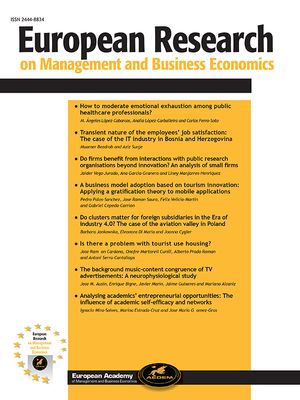Este artículo presenta diferentes líneas de investigación para extender los actuales trabajos empíricos sobre el papel de las Oficinas de Transferencia de Resultados de Investigación (OTRI). Dichas líneas surgen de los nuevos avances en el análisis micro económico de las OTRIs y se plantean cuestiones cómo la justificación de su existencia, los incentivos de los científicos o la mejor forma de transferir tecnología, licencia o spin-off. Muchas de estas líneas permanecen todavía sin analizar y en las que se dispone de evidencia ésta proviene básicamente de EEUU y UK. La investigación empírica debe fomentar nuevos avances en el ámbito teórico.
The present paper presents different lines of work in order to extend the current empirical research about the role of the technology transfer offices (TTO). Those lines of research come from the new advances in the micro economic analysis of TTOs and focus on questions such as the economic reasons for the existence of TTOs, the incentives scheme of the scientist and the best way of transferring technology, licensing or spinning-off. Most of these lines still remain without analyzing and the existent evidence comes basically from US and UK. The empirical research should foment new advances in the theoretical approach.





